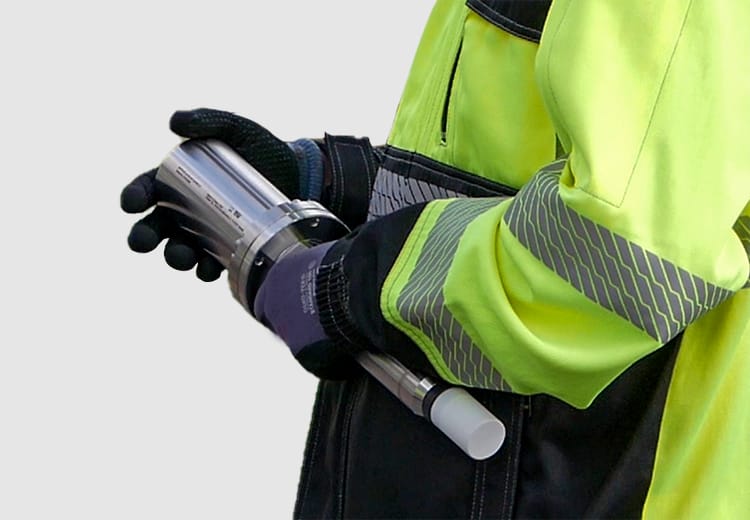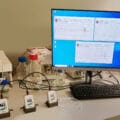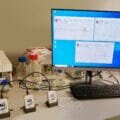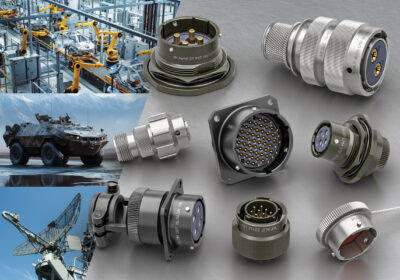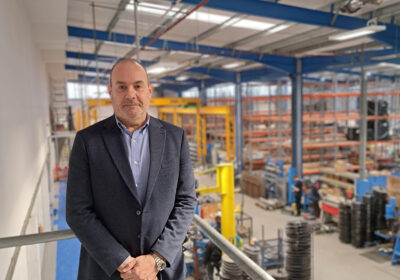Introduction
In an era where sustainable and renewable energy sources are imperative, biogas stands out as a promising solution. However, maximizing its potential necessitates efficient utilization, achieved through accurate biogas upgrading. These systems play a pivotal role in enhancing the quality and utility of biogas, propelling it beyond a mere source of energy.
One notable example is Pentair, a recognised leader in engineering advanced biogas upgrade systems. Pentair’s expertise lies in designing and implementing cutting-edge solutions that elevate biogas to a standard comparable with natural gas. With precise engineering and innovative technologies, Pentair empowers biogas to seamlessly integrate with existing infrastructure, unlocking a spectrum of sustainable applications. Pentair has been instrumental in deploying sustainable solutions, including CO2 recovery plants and biogas upgrading systems.
Biogas upgrading systems play a pivotal role in maximising the potential of biogas as a sustainable and clean energy source. These systems enhance the energy content of biogas by concentrating methane and reducing impurities, enabling it to match the quality of natural gas. This upgraded biogas, often termed biomethane or renewable natural gas, can be seamlessly integrated into existing natural gas grids, providing a direct, clean, and renewable energy supply. It serves as an environmentally friendly fuel, significantly lowering carbon dioxide emissions when utilised for electricity generation, heating, or transportation. Moreover, the ability to store and transport upgraded biogas efficiently enhances its role as a reliable and sustainable energy storage solution.
By transforming organic waste into valuable energy and supporting a circular economy, these systems contribute to waste reduction and the efficient utilisation of biomass resources. “In our pursuit of sustainable progress, we believe in remaining vigilant and thorough, implementing careful controls to minimize revenue losses for our customers while ensuring that our biogas upgrading plants minimise methane slip during purification, making a positive contribution to the energy transition and sustainability goals,” explains Machiel van Essen, NPD Project Manager ─ Technology at Pentair.
Pentair operates a facility called Pentair Haffmans in Venlo, in the Netherlands, where they engineer and manufacture analysis equipment for breweries, CO2 recovery installations, and biogas upgrading systems. Sustainable Fuel Plant (SFP), an innovative facility dedicated to the production and advancement of sustainable energy solutions, approached Pentair to evaluate the biogas upgrading system that had been installed by Pentair at the SFP site, located in Westdorpe, in the Netherlands. This collaboration extended further through Pentair’s partnership with Vaisala, a leading provider of measurement instruments, which played a crucial role in the successful assessment of the biogas upgrading system.
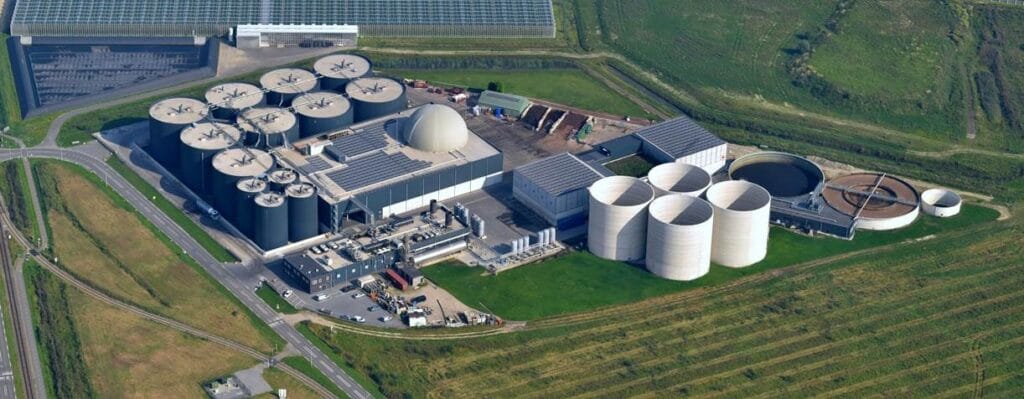
: SFP site, located in Westdorpe, The Netherlands. Image credit SFP
The Challenge
The assessment of the biogas upgrading system at SFP presented a specific set of challenges that demanded a meticulous approach. Firstly, achieving precise analysis of both the biogas feed flow and the process permeate flow (offgas) was deemed critical due to the complex composition of gases involved. Any inaccuracies in the process had the potential to cause elevated methane (CH4) levels in the permeate flow, which could significantly impact the revenue of biogas upgrading sites. Operating under challenging wet conditions was an additional hurdle, requiring analysers that could function effectively despite high relative humidity in both the biogas feed and permeate flows. Moreover, compliance with ATEX zones and safety requirements in biogas facilities, had to be ensured. Conducting in-situ analysis was also vital, minimising the need for new analysis lines and providing a more accurate representation of real-time conditions. Lastly, the analysis was intended to be temporary, necessitating easily implementable and removable analysers that could adapt to evolving requirements during the assessment process.
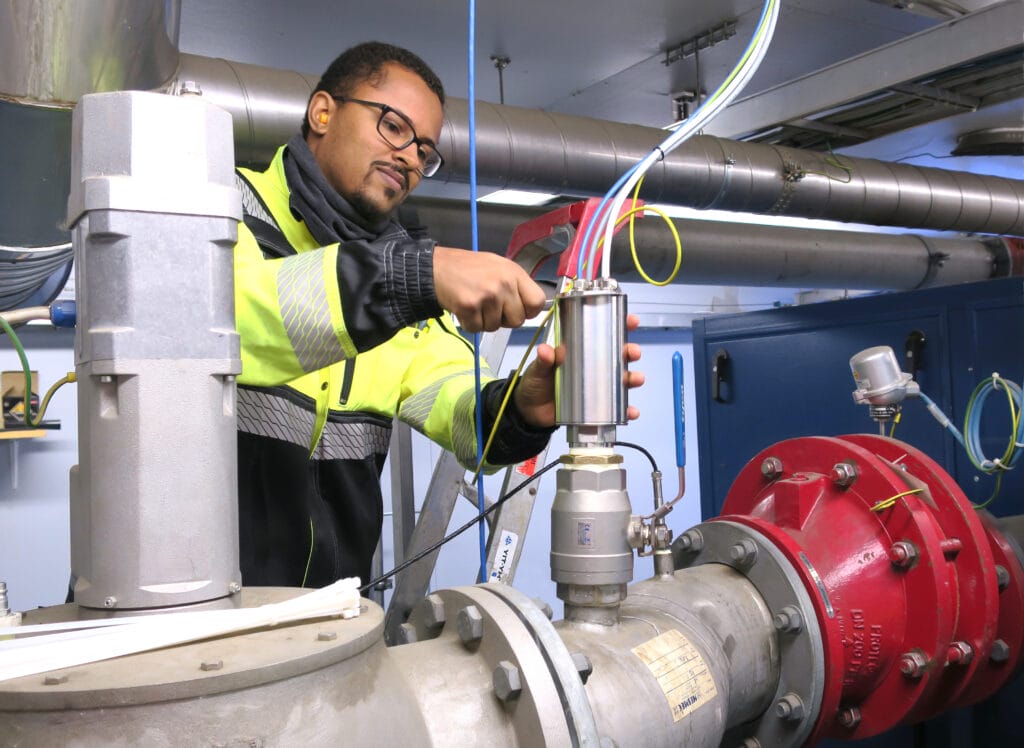
: Pentair Haffmans office and production facility, located in Venlo, The Netherlands.
The Solution
To surmount the array of challenges posed by the biogas upgrading assessment, Pentair joined forces with Vaisala, utilising their extensive experience in the field, to propose a strategic solution for the evaluation. The cutting-edge Vaisala MGP261 and 262 multigas probes were recommended, which proved to be instrumental in addressing the specific requirements of this assessment.
The MGP261 and 262 multigas probes offered a remarkable capability to provide real-time process values, within the defined levels of accuracy and ranges for both CH4 and CO2. A significant advantage was their adaptability to challenging wet conditions, ensuring reliable performance even in high-humidity environments – a crucial factor given the nature of biogas processing. In addition, these probes were simple to install, and comply with the ATEX and safety regulations of biogas facilities.
By synergizing the data obtained from the biogas feed, retentate, and permeate streams, a comprehensive analysis of the entire process was conducted. This holistic approach allowed for a thorough assessment, enabling a deep understanding of the dynamics and efficiency of the biogas upgrading system. The analysis revealed that Pentair’s process design conformed rigorously to the specified design criteria. This validation provided strong assurance to SFP that the biogas upgrading system was functioning precisely as intended, in alignment with the set objectives and performance expectations.
The MGP261 and 262 multigas probes delivered accurate and precise measurements throughout the assessment period. Accurate measurement and optimisation of CH4 and CO2 levels enhance the efficiency and sustainability of the biogas upgrading process.
“We are committed to sustainable progress, and we always strive to prevent revenue losses for our customers by applying rigorous controls,” Machiel van Essen explains. “Our biogas upgrading plants also reduce methane emissions which we measure with Vaisala MGP261 and 262 multigas instruments to optimise the purification process. This way, we contribute positively to the energy transition and sustainability goals.”
Summary
In summary, the collaboration between Pentair and Vaisala, leveraging the MGP261 and 262 multigas probes, demonstrated the effectiveness of these instruments in verifying the performance of the biogas upgrading system at the Sustainable Fuel Plant site. The ease of installation and their reliable performance make these probes a valuable extension of Pentair’s process analysis kit. This solution has the potential to be offered to Pentair customers in the future, enabling the tracking of both process and material performance, aligning with Pentair’s commitment to sustainable and responsible solutions in the field of gases.

